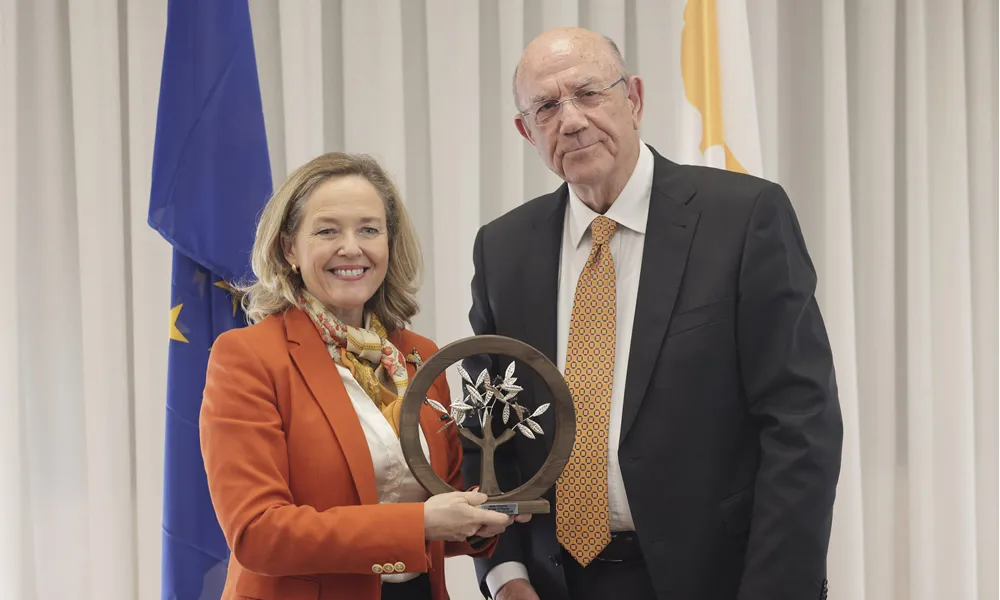European Investment Bank (EIB) President Nadia Calviño reaffirmed the Bank’s readiness to back the Great Sea Interconnector (GSI), linking Cyprus and Greece, provided it remains a strategic priority for both governments and aligned with their energy strategies.
In an interview with the Cyprus News Agency ahead of the EIB Board of Directors meeting in Nicosia on 29–30 September, Calviño stressed the symbolic importance of holding the session in Cyprus, which will assume the EU Council Presidency in January 2026. “We thought this was the right moment to organise our meeting outside headquarters… Cyprus is a wonderful place to visit at any point in the year,” she noted.
The agenda in Nicosia includes the second phase of the EIB’s climate roadmap (2026–2030), artificial intelligence, and digitalisation. Cypriot Finance Minister Makis Keravnos and President Nikos Christodoulides will join discussions, while board members will visit EIB-financed projects such as the Limassol Wastewater Treatment Plant.
Calviño underlined the EIB’s dual priorities of climate and security. She said the Bank has invested more than 50% of its financing annually in the green transition – renewables, grids, industrial decarbonisation, Small and Medium Sized enterprises (SME) efficiency – and will increase funding for climate adaptation to €30 billion in the next phase. “Climate and competitiveness must be a winning tandem for Europe,” she said.
Climate action and energy strategy linked to Europe's security
On security and defence, Calviño announced that EIB financing in this area will more than triple this year to 3.5% of total lending, supporting over 30 flagship projects. The Bank is already funding drone manufacturing facilities, R&D in space and defence technologies, SMEs in defence supply chains, and military mobility infrastructure. Asked about the proposed “drone wall” discussed by EU defence ministers, she said financing would be possible within the Bank’s remit.
Calviño also linked climate action and energy strategy to Europe’s security. “Every euro the EIB finances is contributing to Europe’s security, whether in energy, climate adaptation, or defence,” she said.
On the GSI project that brings together climate policies and security for Cyprus and Greece, the EIB head said: "I think that we have been very clear from the beginning that we would support strategic projects that are supported by the two countries, and where the two governments are committed to develop those projects, projects that are compatible and engraved in the energy strategy of the two countries."
Cyprus' EU Presidency
On the Cypriot Presidency, she stressed the EIB’s role as the main implementing partner of the EU’s Multiannual Financial Framework, calling Cyprus’ leadership “very important” for post-2027 budget negotiations. She highlighted the EIB’s unique position as the only financial institution owned by all 27 member states and fully aligned with EU priorities.
Responding to a question on Turkey, Calviño confirmed that the Bank is pursuing “a gradual and reversible re-engagement” strictly under the mandate of the European Council.
Over the past five years, the EIB has invested more than €1.5 billion in Cyprus. Just last week, three new financing agreements were signed: €50 million for the ‘Thalia 2021–2027’ programme, €5 million for the expansion and upgrading of the Cyprus Institute of Neurology and Genetics’ infrastructure, and €62.5 million in cooperation with Eurobank to support Cypriot SMEs and start-ups under the InvestEU programme.
Source: CNA
